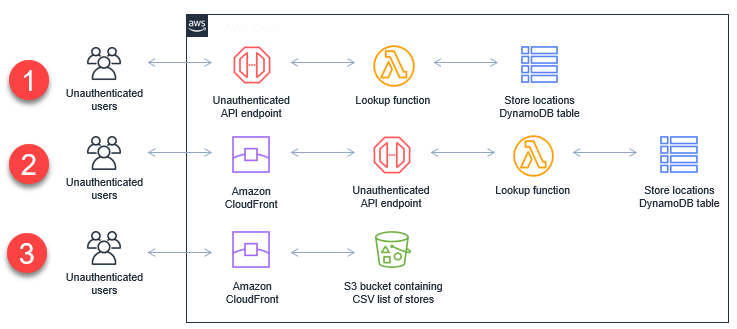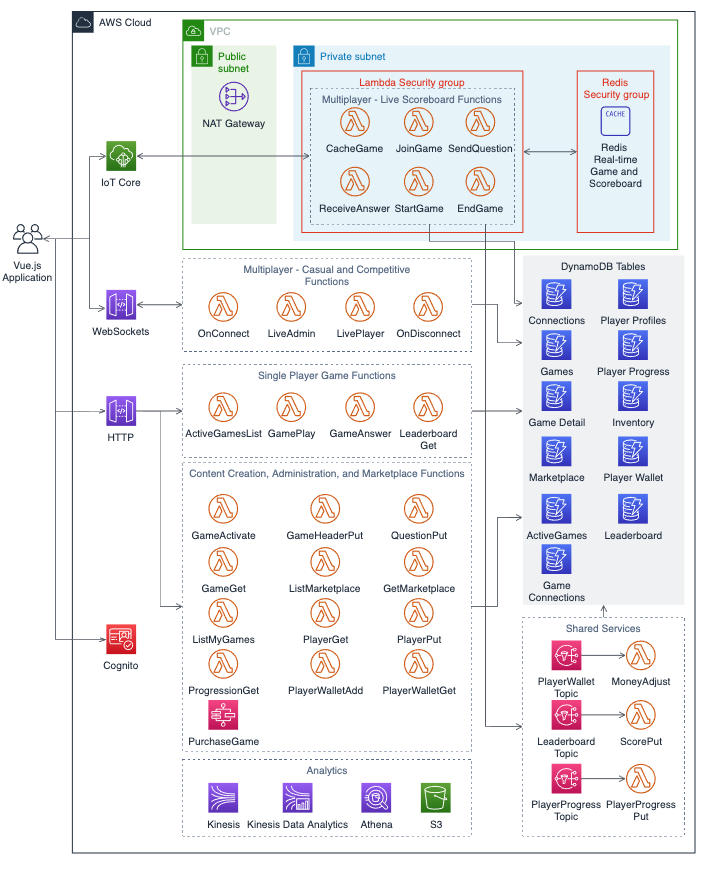AWS Compute Blog
Category: *Post Types
Building single binary file extensions for AWS Lambda with .NET
This post shows how to create, build, and package a C# Lambda extension as a single binary file. Explore the example code and other Lambda extensions examples in the GitHub repository.
Deep dive on the new Amazon EC2 G4ad instances
This post is contributed by Amr Ragab, Senior Solutions Architect, Amazon EC2 The Amazon EC2 G4ad instance type is the latest addition to AWS’ portfolio of accelerated computing instance types. These instances are ideal for graphics-enabled and gaming workloads. They provide the best price performance for graphics intensive applications such as virtual workstations, gaming and […]
Operating Lambda: Debugging code – Part 1
Debugging serverless applications is different to debugging single-server or monolithic applications. You must consider debugging across multiple invocations and services, and understanding the state of a distributed workload.
Supporting AWS Graviton2 and x86 instance types in the same Auto Scaling group
This post is written by Tyler Lynch, Sr. Solutions Architect – EdTech, and Praneeth Tekula, Technical Account Manager. As customers seek performance improvements and to cost optimize their workloads, they are evaluating and adopting AWS Graviton2 based instances. This post provides instructions on how to configure your Amazon EC2 Auto Scaling group (ASG) to use […]
Better performance for less: AWS continues to beat Azure on SQL Server price/performance
By Fred Wurden, General Manager, AWS Enterprise Engineering (Windows, VMware, RedHat, SAP, Benchmarking) AWS R5b.8xlarge delivers better performance at lower cost than Azure E64_32s_v4 for a SQL Server workload In this blog, we will review a recent benchmark that Principled Technologies published on 2/25. The benchmark found that an Amazon Elastic Compute Cloud (Amazon EC2) […]
Operating Lambda: Building a solid security foundation – Part 2
In this blog post, I explain how to secure workloads with public endpoints and the different authentication and authorization options available. I also show different approaches to exposing APIs publicly.
Building a serverless multi-player game that scales
This post introduces the Simple Trivia Service, a single- and multi-player game built using a serverless-first architecture on AWS. I cover different solutions that you can use to enable connectivity from your game client to a serverless-first backend for both single- and multi-player games.
Operating Lambda: Building a solid security foundation – Part 1
This post explains the Lambda execution environment and how the service protects customer data. It covers important steps you should take to prevent data leakage between invocations and provides additional security resources to review.
Operating Lambda: Application design – Part 3
This post discusses choosing and managing runtimes, the effect on performance, and how you can use multiple runtimes within a single serverless application. It explains the networking model and whether a Lambda function must have access to a customer VPC or can run with the default VPC configuration. It also compares the different invocation modes for Lambda functions.
Extending SaaS products with serverless functions
As customers increasingly use SaaS solutions in their businesses, they want the same customization and extensibility available in on-premises solutions. SaaS partners have developed APIs and integration hooks to help address this need. For more sophisticated customization, products enable custom code to run within their SaaS workflows.








